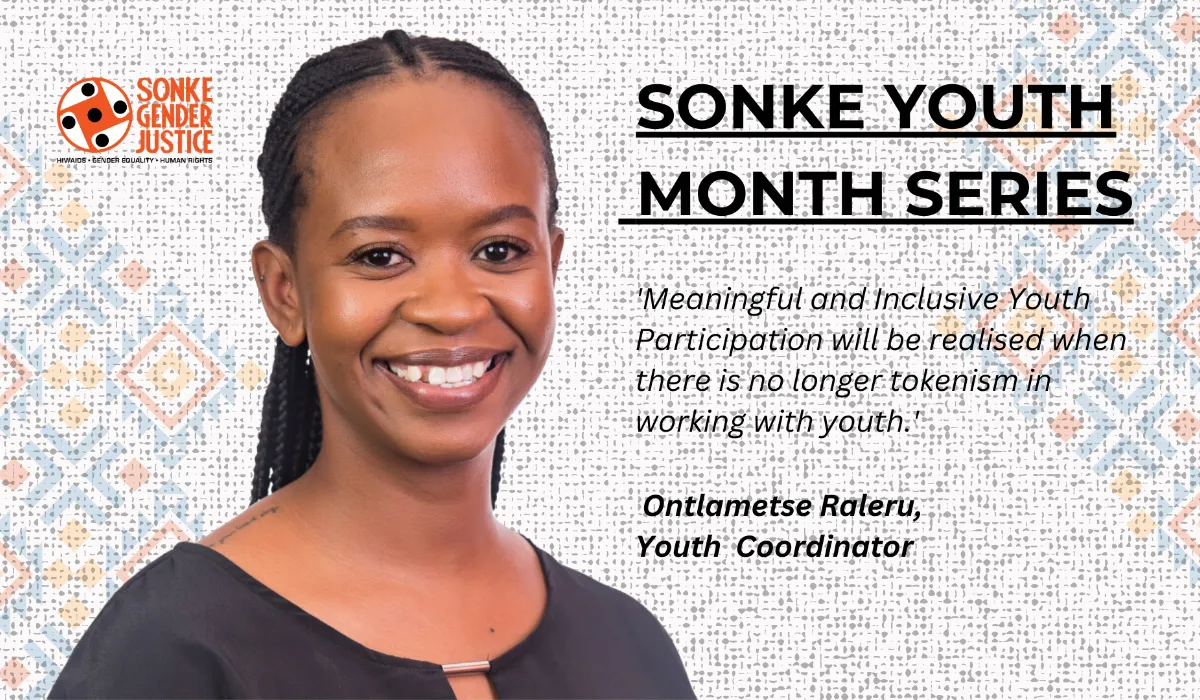Ontlametse Raleru has a passion for youth development and has been working since 2016 to support young people and help them to reach their full potential. Within her portfolio as Youth leadership coordinator at Sonke Gender Justice, she has led capacity strengthening for young people in the MenEngage Africa Region on the importance of Meaningful and Inclusive Youth Participation (MIYP) in project implementation and the development of PowerToYouth media toolkit to build the skills of young people on media and advocacy. She has also developed a MIYP checklist for organisations to gauge their level of engaging youth. By ensuring youth substantive engagement, Raleru has demonstrated her commitment for youth leadership by relentlessly supporting the youth wings of the MenEngage Africa networks and ensuring youth-sensitive begetting and programming.
“MIYP strategy shows that when young people’s capacities are strengthened, they can participate in issues that directly affect them. Functional youth wings have allowed young people to assume spaces and raise their voices, this was evident in the MEA 2024 AGM where the regional youth steering committee called for more meaningful engagement of young people” Raleru explains.
Amidst backlash like youth insensitive policies and harmful practices, Raleru does not give up the zeal to promote MIYP. There is progress in promoting safe spaces for youth participation in decision making processes. The PowerToYouth Programme currently implemented in eight countries uses intersectional approaches in promoting youth development. This programme stands out as evidence of how young people now have the power to speak up for themselves and lead their peers to make meaningful contributions to their communities. While working in Malawi and Uganda, Raleru has contributed to, and witnessed improvement in the participation of young people. Based on evidence, she explains that
“There are strides recorded. PowerToYouth conducted its midterm review in 2023 and the findings showed that MIYP has improved since the introduction of the program. In Malawi and Uganda where Sonke Gender Justice is the consortium partner, young people are in country management teams where they get to make decisions, they are now able to engage directly with policy makers and participate in advocacy processes.”
Although young people are taking up spaces, Raleru opines that there is a need to ensure that these spaces are not just project-based but live beyond project cycles and the skills gained are passed-on to other young people. There still exist gaps for meaningfully engaging young people in the promotion of gender equality and human rights viz lack funding for Youth-led organisations; the need for improved capacity building and low intergenerational solidarity which makes it difficult to foster youth-adult partnerships.
Achieving Meaning and Inclusive Youth Participation (MIYP) will become a reality when some indicators are met, and young people are free from inequalities.
“When young people are no longer calling for meaningful engagement, support, and funding. When there is no longer tokenism in working with young people, when specific policies are designed to address different issues affecting young people and when youths are no longer affected by issues such as harmful practices, unemployment, climate change and inequalities” she concludes.








